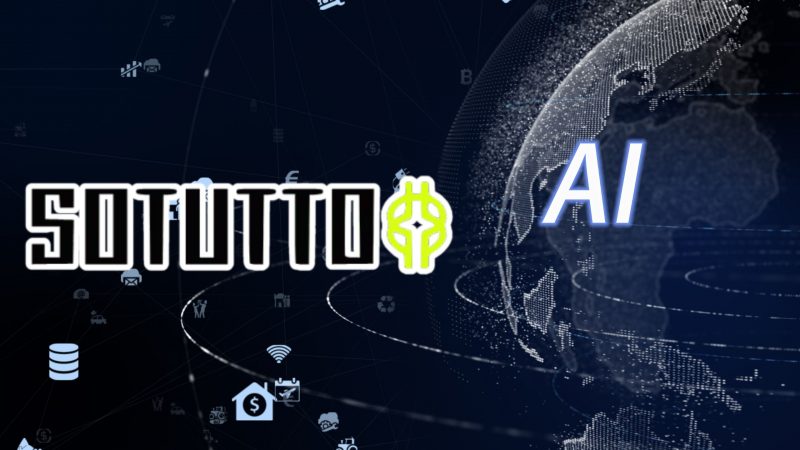Opening Hidden Knowledge: Using Dark Web Search Engines For Academic Research

Dark web search engines provide special tools often missed in more traditional research models. Although the dark web is usually connected with illicit activity, it is a storehouse of important information—especially for research. These specialist search engines may find raw data, alternate viewpoints, and specialty material not often found on the surface web. Studies, publications, and conversations that provide light on sociocultural trends, new technology, and other vital fields of research give researchers access Moreover, knowing the dark web improves digital literacy and supports a more all-encompassing strategy to data analysis. Academic institutions may greatly enhance their research portfolios by illuminating this unusual ground.
Readers of this paper can expect an investigation of the ways dark web search engines could improve academic research by offering both creative ideas and useful tools.
Expanding Research Horizons with Dark Web Data
Often lacking on the surface web, dark web search engines provide unique sources and points of view. They provide access to rare databases, specialized communities, and hidden forums, therefore enhancing the study possibilities. This may particularly be useful for academics seeking certain material that traditional sites would overlook.
On the black web, rare or specialized academic items abound: unpublished research, niche studies, and unusual data sets. Such literature could provide fresh ideas and other points of view, therefore enhancing the scholarly debate.
Dark web materials will be much appreciated in subjects like anthropology, cybersecurity, and sociology. In anthropology, researchers could find discussions or unrecorded cultural behaviors. While sociologists may investigate special social dynamics and behaviors within underprivileged areas, cybersecurity experts can examine developing risks and trends in real time.

Identifying Reliable Sources on the Dark Web
Examining content from a dark web search engine requires a thorough approach. One sensible strategy is cross-refining dark web items with reputable academic databases—like JSTOR or Google Scholar. This method helps verify claims and identify reliable authors or research compatible with the information gathered on the dark web.
Using cutting-edge technologies like Workbench and online plagiarism checkers helps one evaluate the originality and validity of the material. Researchers may also investigate forums and conversations using anonymity networks like Tor, keeping eye on user reputation systems and community comments.
Tracking the publishing date and the frequency of changes for dark web material improves dependability as well. Usually, constantly updated information is more reliable. At last, considering bibliographies and references helps one understand the fundamental research of the source, thus supporting the evaluation of credibility. These techniques let researchers negotiate the complexity of the dark net and efficiently find trustworthy sources.
Enhancing Data Collection and Analysis
Dark web search engines might significantly enhance the data collection and analysis process for academic research by providing access to unique, often neglected material. By exposing qualitative content like forums, articles, and discussions as well as documentation, these sites serve to increase understanding of certain subjects.
There are many benefits of using dark web data into research techniques. Although first-hand stories and fresh ideas have qualitative research value, datasets that may not be readily accessible in traditional sources enhances quantitative research. From this abundance of information, more thorough research and more complex results might follow.
Scholars should use transparent approaches for data validation and ethical issues if they want to properly use dark web results into scholarly work. Reliability depends on keeping strict documentation and using specialist dark web technologies. Furthermore, matching dark web insights with current systems helps to improve the general results and story of research initiatives. Strategic use of dark web resources allows researchers to extend their horizons, hence producing more rich, powerful studies.
Ethical Considerations and Best Practices
Dark web data used in academic research raises ethical questions about privacy, legality, and possible damage. Protection of people’s identity is first priority for researchers, and they must make sure their work does not inadvertently support criminal activity. Maintaining academic integrity is crucial; so, researchers should approach dark web data with a cautious eye, aware of its limits and possible prejudices.
Following institutional review board recommendations guarantees legal requirements are satisfied, and, if needed, getting the necessary permits defines optimum standards for ethical research. Personal information should be removed from data sets so as to prevent criminal activity from being facilitated.
When individuals share freely about techniques and results, the research is more likely to be reliable. Conscientious academic environment is created in part by scholars who document the reason for adopting atypical sources. In the end, ethical standards and honesty are largely responsible for keeping faith in the research community even if dark web investigation could provide interesting facts.
Future Trends and Opportunities
Emerging trends point to dark web search engines being more and more appreciated tools for academic research. These sites provide access to unindexed material, which could highlight subjects seldom studied in conventional academic circles. Improved artificial intelligence and machine learning will help dark web data to be more accessible and useful, therefore allowing more efficient data sorting and analysis.
There are several options for multidisciplinary study. Working together among computer scientists, social scientists, and data analysts results in creative ways for using dark web data. This synergy may assist solve challenging society concerns like cybersecurity, public health, and information distribution patterns, therefore offering a more complete knowledge of the digital terrain.
Ensuring careful treatment of sensitive data will enable the integration of safe data-sharing methods to assist to ease these alliances even further. As dark web research becomes more and more popular, academics might embrace new ethical frameworks that would inspire them to enter uncharted territory while nevertheless maintaining standards and respect of privacy.

Conclusion
Academic research using a dark web search engine offers a great chance to improve the depth and range of investigations. These sites provide access to a lot of hidden and often disregarded data that might greatly enhance study projects. Using original materials allows scholars to find several points of view and ideas that may not be easily accessible using standard search engines. This research stimulates intellectual debate and a more thorough knowledge of difficult subjects by use of creativity. Furthermore, using the dark web as another research tool emphasizes the need of flexibility in an always changing digital world. Researchers urged to explore this unexplored area as it may result in ground-breaking revelations and a more advanced approach of their working.



